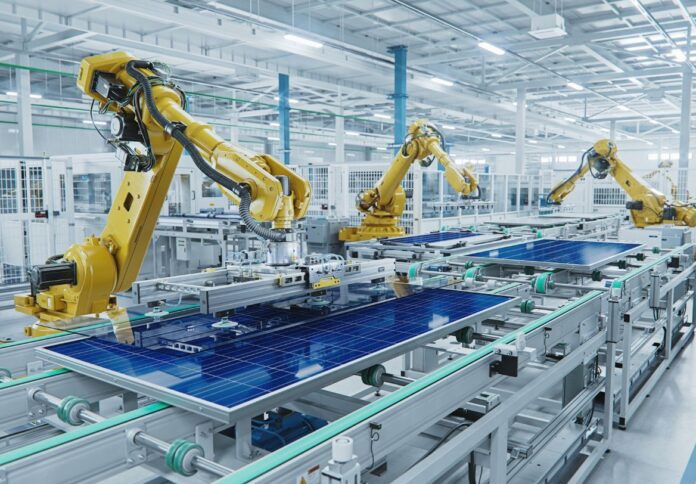
Sponsored Content for SAP
Midsize companies in the global industrial manufacturing sector are facing a transformative era driven by automation and artificial intelligence (AI). As industry leaders recognise, these technologies are reshaping the very foundations of manufacturing processes and workforce dynamics.
This observation resonates strongly with the Australian manufacturing sector where companies are increasingly introducing AI and data-driven solutions into their operations to enhance productivity and maintain a competitive edge in the global market.
However, the successful implementation of AI and automation extends far beyond mere technological adoption. Workforce development plays a critical role in staying competitive in this era. This is according to a Canadian executive quoted in Oxford Economics and SAP’s whitepaper, “Reinventing Industrial Manufacturing: How digitization can help midsize manufacturers grow and compete.” This highlights the need for businesses to invest in workforce upskilling alongside digital transformation.
The talent problem in the digital age
As digitalisation sweeps across the global manufacturing sector, it brings with it a pressing challenge: the growing talent gap. According to the whitepaper, while talent issues affect all midsize organisations to some degree, a substantial 39 per cent of manufacturers have cited talent shortages as a significant risk to their operations and growth.
This issue stems from the rapid technological advancements in the manufacturing landscape today. As factories become smarter and more connected, the skills required to operate, maintain, and optimise these digital systems have evolved dramatically. Traditional manufacturing roles are being augmented or replaced by positions that demand a hybrid skill set, blending mechanical knowledge with digital literacy and data analysis capabilities.
This shift has created a widening chasm between the skills of the current workforce and the requirements of modern manufacturing environments.
From challenge to opportunity
While digitalisation has created challenges in the manufacturing sector, it may very well be the answer to these problems. The Oxford Economics/SAP whitepaper reveals that cloud-based technologies are at the forefront of this transformative change, with approximately 80 per cent of industrial manufacturers already leveraging cloud solutions. These technologies are yielding significant benefits, including enhanced employee experiences, increased agility, cost reduction, and improved innovation capabilities.
Looking ahead, industrial manufacturers are eyeing AI and other advanced technologies to address critical business needs. These include tackling workforce knowledge shortages, providing more efficient and accurate customer guidance and automating customer support.
The path forward is clear: Australian manufacturers must embrace a dual strategy of technological advancement and workforce development. By doing so, they can not only bridge the skills gap but also drive innovation and maintain competitiveness in an increasingly digital landscape.


















